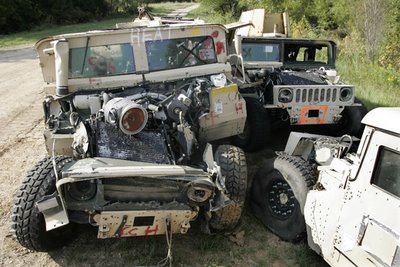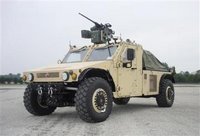Technical note: You may see several versions of this post over the next few hours, as it is my first attempt to include a table with a post. If it looks weird in your browser, let me know.
The Democrats have nailed down most of their committee assignments for the new Congress. Much has been made of the race and gender of the new chairmen and chairwomen. But what does that tell us about how business will be conducted come January?
Beyond the politics of the individual chairmen, consider the way power shifted regionally.
SENATE
| Committee | Former chairman | Incoming chairman |
|---|---|---|
| Aging | Gordon Smith (R-Ore.) | Herb Kohl (D-Wis.) |
| Agriculture, Nutrition, and Forestry | Saxby Chambliss (R-Ga.) | Tom Harkin (D-Iowa) |
| Appropriations | Thad Cochran (R-Miss.) | Robert Byrd (D-W.Va.) |
| Armed Services Committee | John Warner (R-Va.) | Carl Levin (D-Mich.) |
| Banking, Housing, and Urban Affairs | Richard Shelby (R-Ala.) | Christopher Dodd (D-Conn.) |
| Budget | Judd Gregg (R-N.H.) | Kent Conrad (D-N.D.) |
| Commerce, Science, and Transportation | Ted Stevens (R-Alaska) | Daniel Inouye (D-Hawaii) |
| Energy and Natural Resources | Pete Domenici (R-N.M.) | Jeff Bingaman (D-N.M.) |
| Environment and Public Works | James Inhofe (R-Okla.) | Barbara Boxer (D-Calif.) |
| Ethics | Charles Grassley (R-Iowa) | Tim Johnson (D-S.D.) |
| Finance | Charles Grassley (R-Iowa) | Max Baucus (D-Mont.) |
| Foreign Relations | Pete Domenici (R-N.M.) | Joe Biden (D-Del.) |
| Health, Education, Labor, and Pensions | Mike Enzi (R-Wyo.) | Ted Kennedy (D-Mass.) |
| Homeland Security & Governmental Affairs | Susan Collins (R-Maine) | Joe Lieberman (I/D-Conn.) |
| Indian Affairs | John McCain (R-Ariz.) | Byron Dorgan (D-N.D.) |
| Intelligence | Pat Roberts (R-Kan.) | Jay Rockefeller (D-W.Va.) |
| Judiciary | Arlen Specter (R-Pa.) | Patrick Leahy (D-Vt.) |
| Rules and Administration | Trent Lott (R-Miss.) | Dianne Feinstein (D-Calif.) |
| Small Business and Entrepreneurship | Olympia Snowe (R-Maine) | John Kerry (D-Mass.) |
| Veterans' Affairs | Larry Craig (R-Idaho) | Daniel Akaka (D-Hawaii) |

Analysis: Power shifted generally from the middle and South to California, New England and the Upper Midwest. Mississippi and Maine each lost two chairmanships, New Mexico and Iowa broke even, while Hawaii, California, North Dakota, West Virginia, Connecticut and Massachusetts each gained two. The middle South remains shut out.
HOUSE
| Committee | Former chairman | Incoming chairman |
|---|---|---|
| Agriculture | Bob Goodlatte (R-Va.) | Collin Peterson (D-Minn.) |
| Appropriations | Jerry Lewis (R-Calif.) | David Obey (D-Wis.)* |
| Armed Services | Duncan Hunter (R-Calif.) | Ike Skelton (D-Mo.) |
| Budget | Jim Nussle (R-Iowa) | John Spratt (D-S.C.) |
| Education and the Workforce | Howard McKeon (R-Calif.) | George Miller (D-Calif.) |
| Energy and Commerce | Joe Barton (R-Texas) | John Dingell (D-Mich.) |
| Ethics | Doc Hastings (R-Wash.) | Howard Berman (D-Calif.) |
| Financial Services | Michael Oxley (R-Ohio) | Barney Frank (D-Mass.) |
| Government Reform | Tom Davis (R-Va.) | Henry A. Waxman (D-Calif.) |
| Homeland Security | Peter King (R-N.Y.) | Bennie Thompson (D-Miss.) |
| House Administration | Vernon Ehlers (R-Mich.) | Juanita Millender-McDonald (D-Calif.) |
| Intelligence | Peter Hoekstra (R. Mich.) | Silvestre Reyes (D-.N.Y.) |
| International Relations | Henry Hyde (R-Ill.) | Tom Lantos (D-Calif.) |
| Judiciary | James Sensenbrenner (R-Wis.) | John Conyers (D-Mich.) |
| Resources | Richard Pombo (R-Calif.) | Nick Rahall (D-W.Va.) |
| Rules | David Dreier (R-Calif.) | Louise Slaughter (D-N.Y.) |
| Science | Sherwood Boehlert (R-N.Y.) | Bart Gordon (D-Tenn.) |
| Small Business | Donald Manzullo (R-Ill.) | Nydia Velazquez (D-N.Y.) |
| Transportation and Infrastructure | Don Young (R-Alaska) | James Oberstar (D-Minn.) |
| Veterans' Affairs | Steve Buyer (R-Ind.) | Bob Filner (D-Calif.) |
| Ways and Means | Bill Thomas (R-Calif.) | Charles Rangel (D-N.Y.) |

Analysis: A more muddied picture, but generally power shifted from Virginia and the Central Midwest -- Iowa, Illinois, Indiana, Ohio -- to New England, the Upper Midwest and the South. Alaska, again, lost its only chairmanship. Texas, California, Wisconsin and Michigan broke even; New York went from two to three chairmanships. The West remains entirely shut out.
Looking at specific subject areas, you can predict what sort of legislation will make it out of certain committees in both houses:
Agriculture: Midwest (Minnesota, Iowa) takes over from the South (Georgia, Virginia). Among other things, might the dairy subsidy system (which has long penalized farmers in the Upper Midwest) be in for a reform effort? Also expect efforts to increase tax credits for ethanol production.
Energy: The House chairmanship stays in New Mexico, but the Senate chair shifts from Texas to Michigan. Look for fewer "drill more!" solutions and more emphasis on alternative energy. ANWR will remain untouched.
Transportation: The Alaskan stranglehold that led to such excesses as the "Bridge to Nowhere" is gone, replaced by a Hawaiian and a Minnesotan. Look for a greater emphasis on air travel. Further, with both states sharing large port facilities, expect stepped up efforts on port security and infrastructure.
Anyone see any other patterns of significance? Point 'em out!
politics, midtopia






